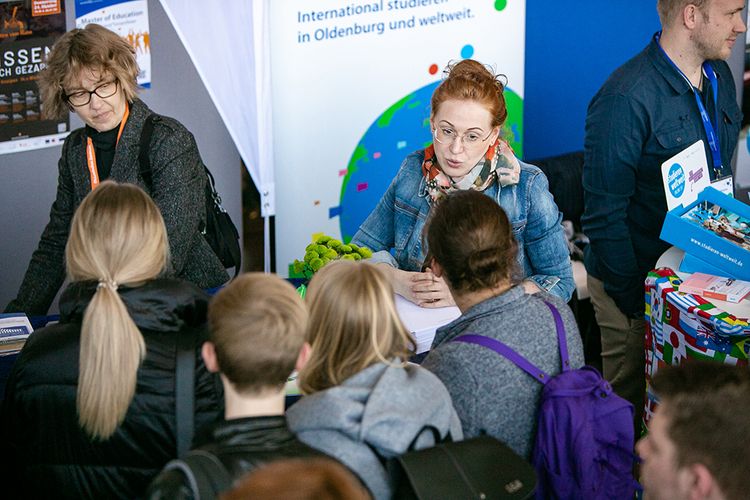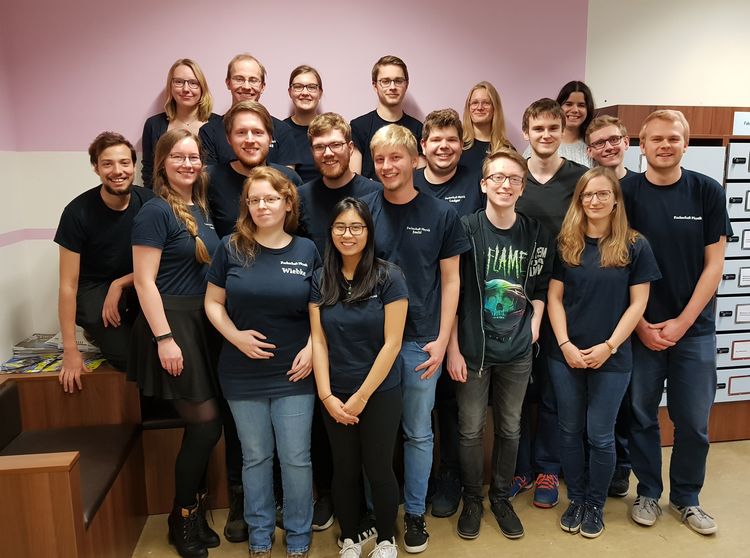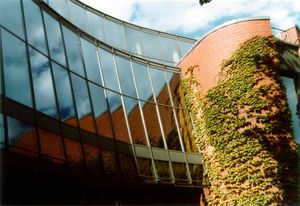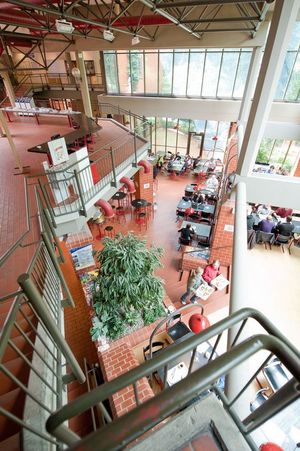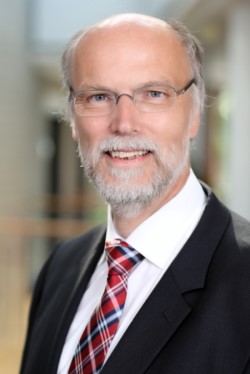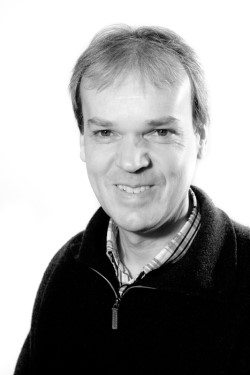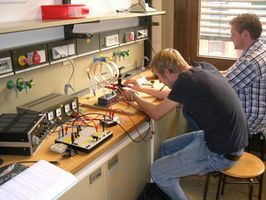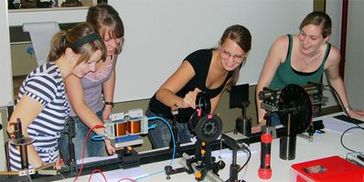Bachelor's degree in Physics, Technology and Medicine (PTM)
Further information
Study programs
uol.de/study/study-offers
Offers for prospective students
uol.de/study/study-decision
Bachelor's degree in Physics, Technology and Medicine (PTM)
The problems in modern medicine can only be solved through interdisciplinary cooperation between scientists and clinicians. The Bachelor's degree course in "Physics, Technology and Medicine" provides the right mix of theory and practice, physics and medicine, technology and life sciences to master the challenges in research, industry and clinical practice.
The course is aimed at technology and medicine enthusiasts for whom science is the main focus. It closes a gap between the basic, physical and technical subjects (physics, electrical engineering, acoustics, signal processing) and the life sciences (medicine, biology, psychology), thus offering optimal conditions for entry into an excellent research field and a wide range of career options in industry, clinics and universities.
As a location, the University of Oldenburg offers an excellent link to the "Hearing4all" cluster of excellence and thus demonstrates a high degree of interdisciplinarity between physics, medicine, acoustics and neuroscience. The course offers early research contacts and the opportunity to work at university and non-university institutes such as Fraunhofer, HörTech and Hörzentrum Oldenburg.
Your studies in detail - by students for students
Finding a degree course is not easy for many people and that's perfectly fine. After all, you want to stay on this course for the next three years and not realize after one or two semesters that you don't like physics, medicine, etc. at all. We assume that you do like these subjects and that's why you're here. Because we didn't have an easy time choosing our degree course either, but definitely don't regret it now, we would like to share our impressions and experiences of the Physics, Technology and Medicine degree course with you. Since not everything we can and would like to say fits on an A4 flyer, we will do so here in detail. We hope that we can help you with your decision.
That's all we can tell you about our PTM degree program in a nutshell. If you still have questions, you are welcome to contact the responsible lecturer PD Dr. Stefan Uppenkamp, whose contact details can be found at the top left of this page. You can find everything else under the "Apply and enrol" tab.
Why should you enrol/apply for PTM?
"You should definitely apply if you are enthusiastic about the classic STEM subjects and medicine and are not afraid of practical projects such as (laboratory) internships, programming, etc.!"
Student, 4th semester PTM
We hope to welcome you as a fellow student soon!
This is us - professors and students speak out personally
Under Your studies you have already received some impressions of the degree program. However, apart from two pictures of our professors, you have only seen a few names under quotes and therefore no picture of your future fellow students. That's why we're here to tell you about our experiences and other interesting facts about PTM. All videos are in German. If you have any questions, please get in touch with the contact persons.
We students introduce PTM
If you have any further questions, you can of course contact them in advance by email via the student council: fsphysik@uol.de
The professors introduce PTM
Of course, our professors also want to have their say. Here they present PTM from a teaching perspective, but also tell us what you can do with PTM later on and what they are currently researching.
As always, you can contact them in advance or during your studies by email if you have any questions about procedures or individual PTM modules.
Prof. Birger Kollmeier: birger.kollmeier@uni-oldenburg.de
PD Dr. Stefan Uppenkamp, Dipl.-Phys .: stefan.uppenkamp@uni-oldenburg.de
General admission requirements
At least one of the following requirements must be met for admission to this degree program:
- General higher education entrance qualification
- Subject-specific higher education entrance qualification
- Advanced technical college entrance qualification for the relevant subject area
- Z examination
- previous vocational training
Special admission requirements
Sufficient German and English language skills must be demonstrated for this degree program:
- Proof of English language proficiency at level B2 (or average grade in English of at least 8 points or English university entrance qualification)
- Proof of German language proficiency (if your mother tongue is not German): DSH2 (German language examination for university entrance) or TestDaF with level 4 in all sections.
For more information on the admission requirements and the application for admission, please refer to the admission regulations.
Application
With a German university entrance qualification: You apply online at the University of Oldenburg.
EU or international applicants: You apply via uni-assist e.V.
Detailed information and deadlines can be found at uol.de/studiengang/bewerben/physik-technik-medizin-fach-bachelor-609/freshman/de
Orders and links
- Link to the website Study/B.Sc. PTM
- Admission regulations for Bachelor PTM
- Examination regulations - general part (as of: 12.09.2018) [pdf]
- Examination regulations - subject-specific part (as of 08.09.2017) [pdf]
- PB extracurricular professionalization area incl. practical modules - general regulations 2017 (Annex 3) (as of: 08.09.2017) [pdf]


